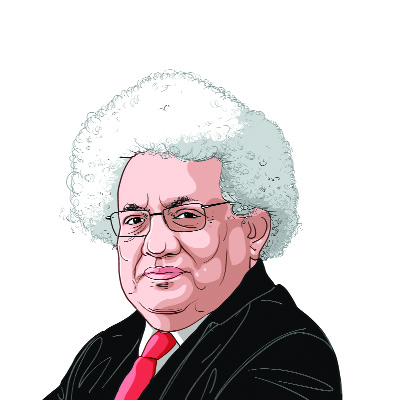Opinion Out of my mind: Changing guard
Over the centuries, the Conservative Party has upheld the existing order and resisted ideas of rapid change.
 British Prime Minister David Cameron addresses the media during an EU summit in Brussels on Tuesday, June 28, 2016. EU heads of state and government meet Tuesday and Wednesday in Brussels for the first time since Britain voted to leave the European Union, throwing British and European politics into disarray. (AP Photo/Geert Vanden Wijngaert)
British Prime Minister David Cameron addresses the media during an EU summit in Brussels on Tuesday, June 28, 2016. EU heads of state and government meet Tuesday and Wednesday in Brussels for the first time since Britain voted to leave the European Union, throwing British and European politics into disarray. (AP Photo/Geert Vanden Wijngaert)  David Cameron tried the Referendum — granting that he thought it would heal the European wound forever.
David Cameron tried the Referendum — granting that he thought it would heal the European wound forever.
Political parties are often ideological, whether of the Left like the British Labour Party or of the Right. But the purpose of a political party is to gain power so it can implement its vision. The Conservative Party is one of the oldest in the world as it can trace its origin to the time of the Bloodless Revolution of 1688. It was on the losing side, being against the change, but survived to compete for power.
Over the centuries, the Conservative Party has upheld the existing order and resisted ideas of rapid change. But it has also realised that change is inevitable. To stay in power, a political party has to adapt. It has to march with time even if it may lag behind rather than be the avant garde.
Yet once more the Conservative Party has demonstrated that it is the master of the art of staying in power. It has been divided over Europe for 30 years now. In its internal quarrels, it wrecked the term of John Major as Prime Minister and then lost three elections and changed leaders four times. Back in power after 13 years in 2010, it had to form a coalition. But it won a majority in 2015. But the quarrel persisted. So David Cameron tried the Referendum — granting that he thought it would heal the European wound forever.
[related-post]
No such luck . The Referendum result destroyed Cameron’s career. He departed, in control one day and out the next. Even as he went, on his last day in Parliament he demonstrated at Prime Minister’s Questions why he was a master of parliamentary politics.
In Britain, prime ministers can be changed quickly. On June 24, the result of the Referendum was announced. Cameron announced he will resign as soon as a successor had been found. The contest was announced and the process began. Five candidates ran. The Conservative Parliamentary Party voted in two sessions. The first stage eliminated the fifth lowest and the fourth lowest also dropped out. Next week, the three were reduced to two. Two women were on the short list to be put to the ordinary members of the party for a postal ballot. That would have taken eight weeks.
Then one of the candidates made the serious mistake of criticising her senior rival in a hurtful personal manner. She was advised to drop out. No postal ballot needed. Theresa May was declared the winner last Monday.
So by the July 11, 18 days after the Referendum, one Prime Minister could be replaced by his successor. He went to the palace to submit the seals of office followed soon after by his successor, who kissed hands with the Queen. Press and people gathered outside 10, Downing Street. The outgoing leader, his wife and children left their home of six years and the new leader walked in with her husband.
Meanwhile, the Labour Party is divided between those who want to spread their message of change and those who want to win elections. The party is paralysed and may split into two.
There are lessons here for India. The oldest party is paralysed due to the hold of the dynasty and cannot return to power. The ideological party needs to be careful it does not put ideology above winning power.





